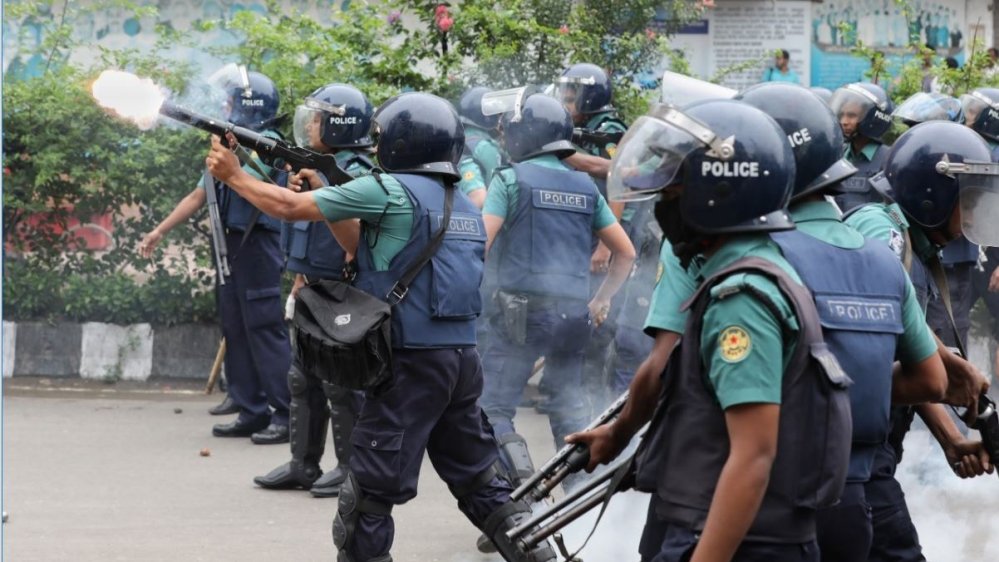CIVICUS, a global civil society alliance, Asian Forum for Human Rights and Development (FORUM-ASIA) and Asian Human Rights Commission (AHRC) are gravely concerned about the use of disproportionate force during demonstrations led by the main opposition party in Dhaka on 28 October 2023. Our organisations call for an independent and impartial investigation into the violations and for the authorities to respect the right to freedom of peaceful assembly.
On 28 October 2023, a huge demonstration was held in Dhaka led by the main opposition party, the Bangladesh Nationalist Party (BNP). Tens of thousands of BNP members and supporters participated in the rally, demanding a neutral caretaker government to oversee the scheduled January 2024 national elections and the resignation of Prime Minister Sheikh Hasina.
According to reports, the protest became violent as the police used disproportionate force, including stun grenades, tear gas, and rubber bullets against the demonstrators. Many protesters were also assaulted by the police. At least one BNP member was killed and nearly a hundred individuals were injured in the clashes between BNP members and the police. One police officer was also reportedly killed, numerous others were injured, vehicles were torched, and the police claim that BNP members were involved in acts of vandalism. However, news reports also mentioned that two individuals wearing a police vest set fire to a bus.
On 29 October, the Secretary General of BNP, Mirza Fakhrul Islam Alamgir, was arrested by the police . Over a thousand persons, primarily opposition activists and leaders, have been detained. According to reports, Dhaka Metropolitan Police registered nearly 28 different cases against BNP members linked to the protests.
The recurring use of excessive and disproportionate force by the police, particularly directed against the political opposition, to disrupt and curtail their right to peaceful assembly is deeply worrying. The actions by the police appear to contravene international law and standards, including the UN Basic Principles on the Use of Force and Firearms by Law Enforcement Officials.
Ahead of the 28 October rally, the police initiated arbitrary arrests and conducted raids targeting BNP supporters, leading to a reported detention of hundreds. Journalists also faced attacks during the protests, with reports also indicating that the Bangladesh Telecommunication Regulatory Commission issued a directive to telecom operators to either shut down or reduce internet services in the vicinity of the protests.
Bangladesh was added to the CIVICUS Monitor Watchlist in September 2023. In the run-up to the national elections, there has been an escalating crackdown on the opposition, marked by thousands of fabricated cases filed against its supporters and raids on their residences. The government has also repeatedly targeted human rights defenders, exemplified by the conviction of Adilur Rahman Khan and ASM Nasiruddin Elan of human rights group Odhikar, while simultaneously stifling critical media and journalists.
The draconian Digital Security Act (DSA), known for its overbroad and vague provisions that empowered the authorities to police online spaces and target critics and journalists, has been replaced by the new Cyber Security Act that largely retains DSA’s repressive offences. The government continues to use enforced disappearances as a tool to suppress political movements and silence dissenting voices, creating a climate of fear in the country.
Our organisations urge the Awami League government to end its crackdown against the political opposition and civil society and to take steps to ensure that the upcoming elections are conducted in a secure and peaceful environment, respecting and promoting political plurality and the expression of diverse views, while upholding fundamental rights and freedoms. We also call on the international community to increase its pressure on the Bangladesh government to adhere to the rule of law and end the crackdown on civic space.




